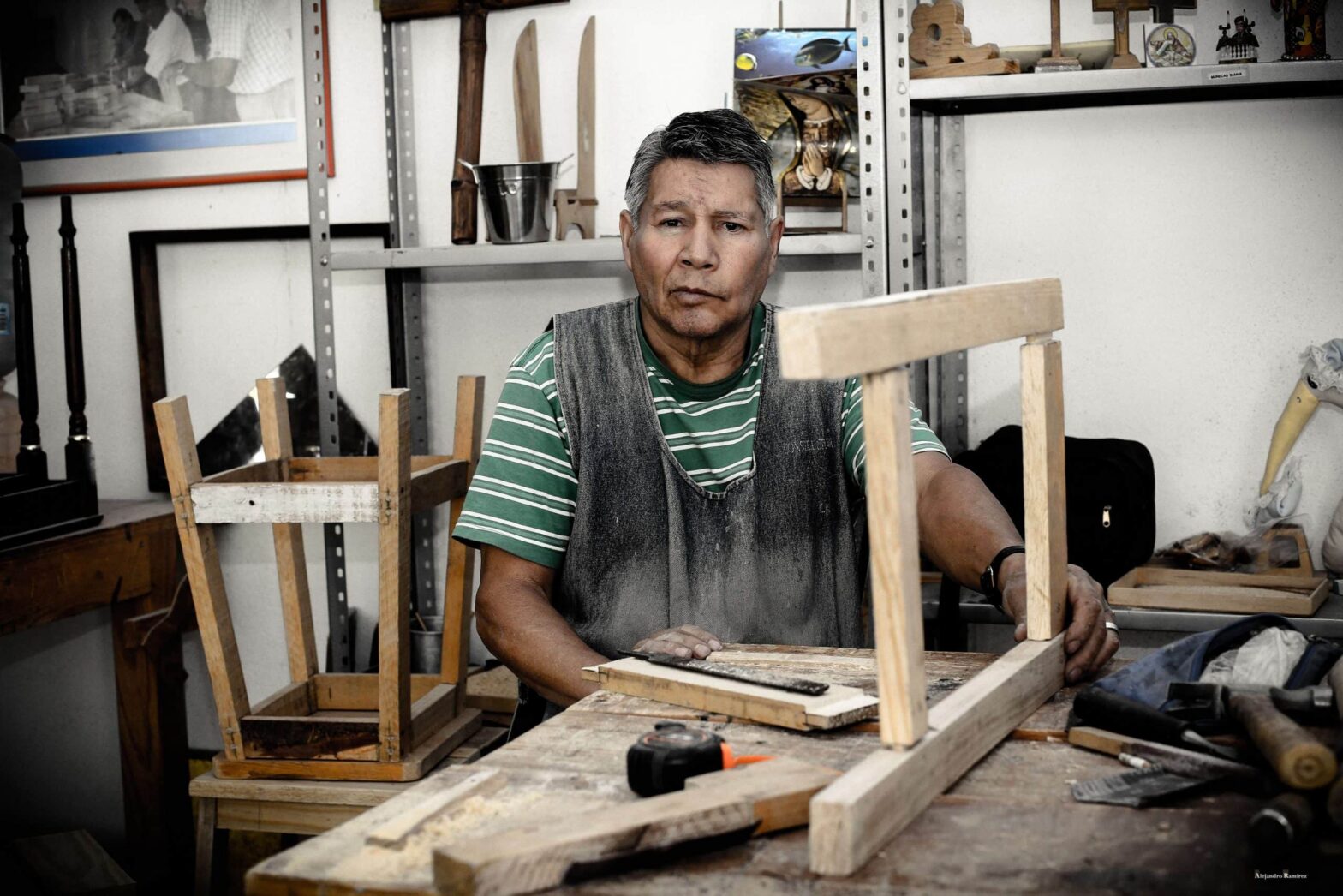Yes, you can teach yourself carpentry through various learning resources and practical experience. Carpentry is a valuable skill that involves constructing, installing, and repairing structures made of wood or other materials.
It requires knowledge of materials, design, and techniques for cutting, shaping, and joining them together. While formal apprenticeships and vocational training programs are available, there are also many ways to learn carpentry skills on your own. With the help of books, online tutorials, and hands-on practice, you can acquire the necessary knowledge and abilities to become a competent carpenter.
This article will explore some of the options and strategies you can use to teach yourself carpentry, as well as the benefits and challenges of pursuing this approach.
:max_bytes(150000):strip_icc()/GettyImages-616244813-5745c1e83df78c6bb0518c78.jpg)
Credit: www.thebalancemoney.com
Importance Of Learning Carpentry
Learning carpentry skills can be a game-changer, allowing you to understand and appreciate the importance of safety, accuracy, and efficiency in building structures. Carpentry skills can help you save money by undertaking projects yourself and are transferrable to various construction and woodworking jobs.
From simple tasks like fixing broken furniture to major home renovations, carpentry skills can give you a sense of accomplishment. Additionally, learning carpentry can improve your problem-solving abilities, critical thinking, and creativity, enhancing your overall skill set as an individual.
In today’s world, where technical and physical skills are in great demand, being a skilled carpenter is an asset in almost any aspect of life.
Can You Teach Yourself Carpentry?
Self-teaching carpentry is possible, but it has its pros and cons. On one hand, it allows you to learn at your own pace, and you don’t have to worry about the cost of formal education. However, self-teaching requires discipline and motivation to stay focused and dedicated to learning.
It could also be challenging to find resources and equipment necessary for practice. To be successful in self-teaching carpentry, one needs to set goals, create a plan, find mentors, and practice consistently. It is essential to seek feedback and critique from others to improve.
While self-teaching carpentry is a feasible option, it requires patience, dedication, and hard work to succeed.
Traditional Apprenticeship
Carpentry is a learned skill that can be self-taught with the right resources at your disposal. However, traditional apprenticeship still remains the most common way to learn carpentry. A traditional apprenticeship is a hands-on training program where an apprentice learns on the job alongside a skilled carpenter.
Pros of a traditional apprenticeship include learning practical skills, gaining experience, and mentorship. Cons include low wages and high competition for positions. Barriers to accessing traditional apprenticeships can include lack of connections, financial constraints, or location. To secure a traditional apprenticeship, network with carpentry professionals, look for apprenticeship programs, and show your passion for the craft.
With hard work, dedication, and a willingness to learn, a traditional apprenticeship can be an excellent way to become a skilled carpenter.
Alternative Learning Options
Learning carpentry can be accomplished in several ways. Some people choose to teach themselves, which has its advantages and disadvantages. Alternative options for learning include apprenticeships, vocational schools, and community college courses. The pros of self-teaching include flexible schedules, freedom to learn at your own pace, and minimal costs.
However, it can be challenging to gain practical experience, and you’re only learning what you know, leaving gaps in your knowledge. Apprenticeships provide a mixture of hands-on experience and in-class education. Vocational schools offer a more in-depth education with certification, but the cost can be prohibitive.
Community college courses are similar to vocational schools but less expensive. Either way, you choose, the alternative learning options above could provide excellent options for aspiring carpenters.
Frequently Asked Questions On Can You Teach Yourself Carpentry?
Is Carpentry A Skill That Can Be Self-Taught?
Yes, carpentry is a skill that can be self-taught. Many people have learned carpentry skills through various resources such as books, online tutorials, and videos.
How Long Does It Take To Learn Carpentry?
The time it takes to learn carpentry varies based on personal dedication and experience. Many factors including the frequency and duration of practice, previous experience, and desired skill level affect how long it takes to learn carpentry.
What Qualifications Do You Need To Be A Carpenter?
Generally, a high school diploma or equivalent is required. To advance, many carpenters continue their education in a technical school or apprenticeship program. A carpentry program can take anywhere from 3 months to 4 years to complete.
How Much Money Can You Make As A Carpenter?
The salary of a carpenter varies based on experience and location. In general, the median annual salary for carpenters in the united states is around $48,000. Experienced carpenters can earn up to $80,000 per year.
What Tools Do You Need To Start Learning Carpentry?
To start learning carpentry, you will need a basic toolset including a hammer, saw, chisels, screwdrivers, pliers, nail pullers, levels, and measuring tapes. Additional tools like power saws, drills, and sanders can be added as you advance your skills.
Conclusion
Learning carpentry is an attainable goal, which you can achieve with enough perseverance and practice. While formal training may give you a head start, you can also teach yourself carpentry by investing in good quality tools, following tutorials and practicing regularly.
It may take a bit longer, but the satisfaction of building something with your own hands and knowing that you have acquired a valuable skill is priceless. Remember to start with small projects, plan carefully, and seek help when necessary.
Making mistakes is a natural part of learning, so don’t be discouraged when things don’t go as planned. With determination and hard work, you can be a self-taught carpenter in no time. So what are you waiting for? Grab your tools, and get started on your carpentry journey today!
